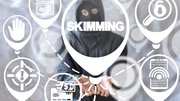News
STUDY: Cash use declines to card use in U.S.
March 2, 2006
WASHINGTON - Cash use in the United States is declining, according to the 2005-2006 Study of Consumer Payment Preferences - a nationwide consumer payment-preferences study conducted by the American Bankers Association and Boston-based Dove Consulting, a division of Hitachi Consulting.
Data from 3,008 completed surveys was used for the study, collected through a national paper and Web survey sent to U.S. consumers. The study is the fourth in a series of biennial studies tracking consumers' payment habits and preferences, and their migration from paper to electronic payments.
"Cash is the universal medium of exchange - everyone knows, trusts and accepts cash," said Jenny Ayres, electronic payment network product manager at The Clearing House, one of the study's sponsors. "In many respects, each new payment method developed and introduced has been forced to compete with cash for a share of transactions, raising the question of whether that payment method is better, faster or cheaper than cash."
According to an ABA news release, most of the measurable erosion of paper-based payments has come at the expense of checks, while cash has maintained 33 percent of consumers' in-store transactions since 2001.
But when consumers were asked how their behavior changed over the last two years, 45 percent reported using cash less often. In place of cash, those consumers are primarily using card-based payment methods.
Of consumers reporting lower cash usage, 40 percent use credit cards, 31 percent use PIN-based debit, 22 percent use signature-based debit and 7 percent use paper checks.
Survey data also suggest additional erosion in the use of cash, with a net 5 percent of consumers projecting a reduction in their cash use over the next two years. Consumers said they currently use cash because of its ease of use, speed and appeal for small-value purchases.
"Cards are becoming the preferred means of payment for a growing number of consumers, as plastic continues to displace cash and check," said Trish Preston, senior vice president of MasterCard's debit product management and development for the Americas. "This trend is likely to continue as new payment innovations make paper payments obsolete and consumers come to rely on the convenience that credit, debit and prepaid can provide."
An influx of new payment products and competitive migration tactics is threatening to erode consumers' use of cash at the point-of-sale, the study found.
Personal-use prepaid cards are beginning to replace cash at the point-of-sale for about 13 percent of the surveyed consumers. And contactless payments, designed for smaller purchases, are targeting a space long dominated by cash.
Contactless payments have yet to gain significant adoption in the marketplace (Only 8 percent of consumers report experience using a contactless key fob, and 6 percent have used a contactless card.), but consumer interest is high, with approximately one third of consumers indicating they would be interested in a contactless key fob or card.
 ChatGPT
ChatGPT Grok
Grok Perplexity
Perplexity Claude
Claude












